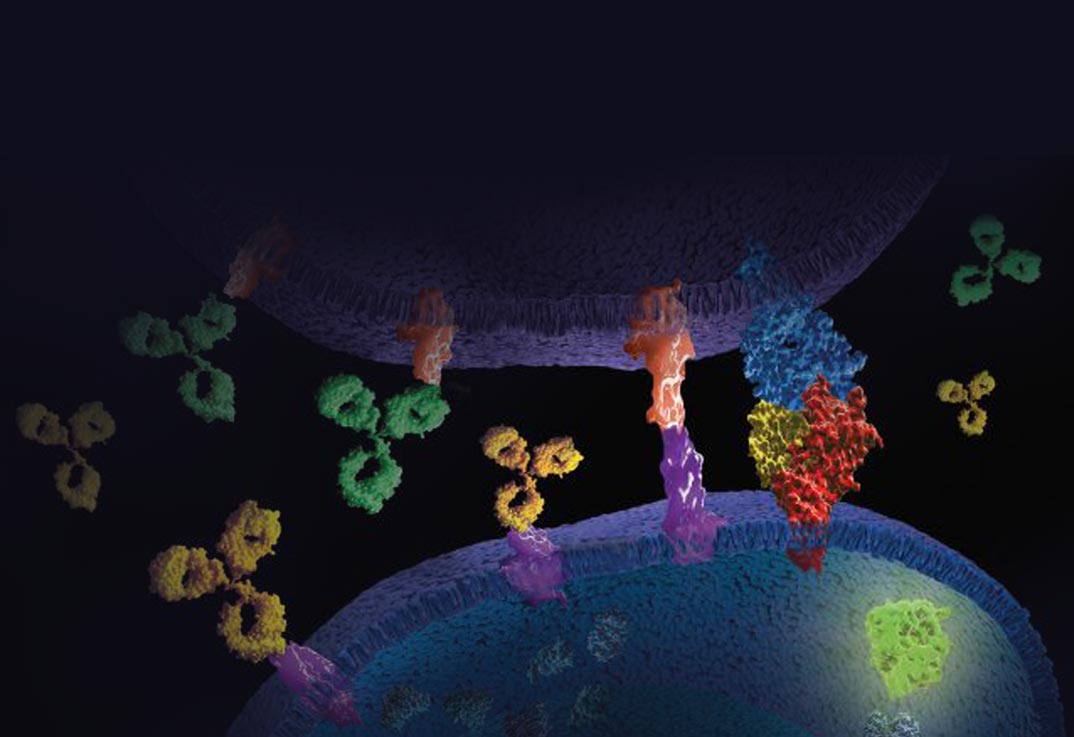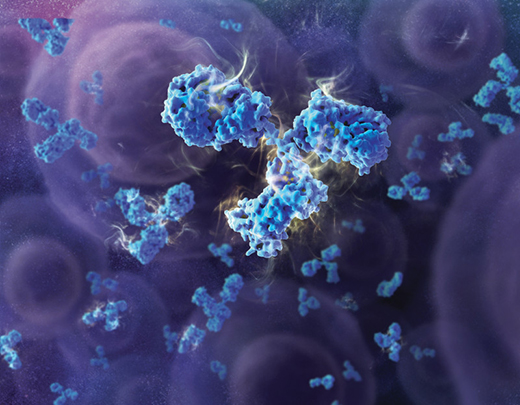Bioassays
Promega offers an extensive toolbox of reporter bioassays to characterize and develop novel monoclonal antibody (mAb) and cell-based therapeutics.
These assays are useful for interrogating a range of biological functions, including Fc effector activity, immune checkpoint modulation, T cell activation, and cytokine and growth factor signaling.
We maintain a dynamic portfolio of quantitative, accurate and precise bioassays and can partner with drug developers in the early stages of biologic development to ensure that our bioassays meet your needs.
Bioassay Product Groups
Cytokine and Growth Factor Assays
Cell-based bioluminescent reporter assays for cytokine immunotherapy targets.
Fc Effector Activity Bioassays
MOA-based functional bioassays for use in antibody screening, characterization, potency testing and stability studies.
Immune Checkpoint Bioassays
Functional cell-based reporter bioassays to measure activity of biologics drugs designed to target immune checkpoint receptors.
Infectious Disease Bioassays
Enabling technologies for drug and vaccine development against urgent viral threats (e.g., SARS-CoV-2, Ebola and Influenza A.
Macrophage-Directed Bioassays
A critical tool for development of immunotherapy drugs to help accelerate your drug development process.
T Cell Activation Bioassays
ICH-prequalified bioassays that enable simple, scalable solutions for drug screening and development.
Target Cell Killing Bioassays
Pair HiBiT Target Cells with primary effector cells for ADCC, ADCP, or CAR-mediated cell death.
RNA Detection Bioassays
Double-stranded RNA detection tools.
Top Bioassay Products for Your Lab
ADCC Reporter Bioassay, V Variant
Measure potency and stability of antibodies mediating ADCC through the high-affinity human FcγRIIIa-V receptor.
G7015, G7014, G7010, G7016, G7013, G7018, G7102, GA1130
PD-1/PD-L1 Blockade Bioassay
Measure the ability of biologics to block immune checkpoint signals
J1250, J1255, J1252, J1191, J1195, J1201
VEGF Bioassay
Measure VEGF activation and inhibition through KDR (VEGFR2).
GA2001, GA2005, GA1082, J2371
An Introduction to Bioassays
Bioassays are analytical methods for measuring the concentration or potency of a substance through its effects on a living system. This assessment is generally achieved through comparison of the response of a test substance with a that of a standard.
These assays can utilize live organisms (in vivo) or tissues or cells (in vitro). Some common categories of bioassays include flow cytometry, proliferation, apoptosis and functional reporter bioassays.
Bioassays are essential for the development of pharmaceuticals as they can provide critical data on potency and stability of drug products. Bioassays are also frequently used to ensure quality of manufacturing processes and perform lot release testing. Furthermore, these assays are used in the establishment of dose-response relationships that determine safe and efficacious levels of drug products. In addition, bioassays can provide evidence to confirm biocomparability of innovator and biosimilar products.
Ultimately, an effective bioassay is reliable, standardized and reflective of a drug’s mechanism of action.


